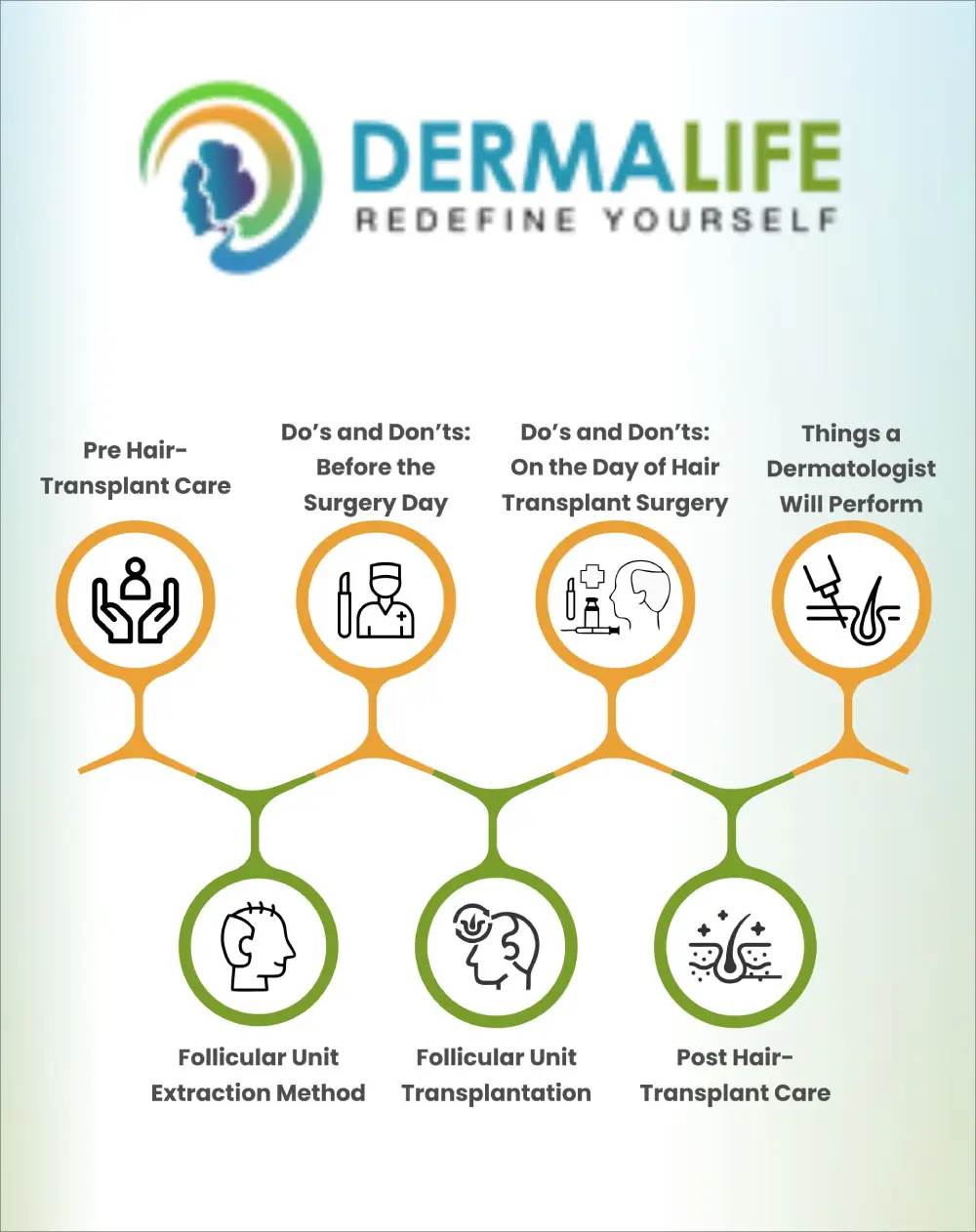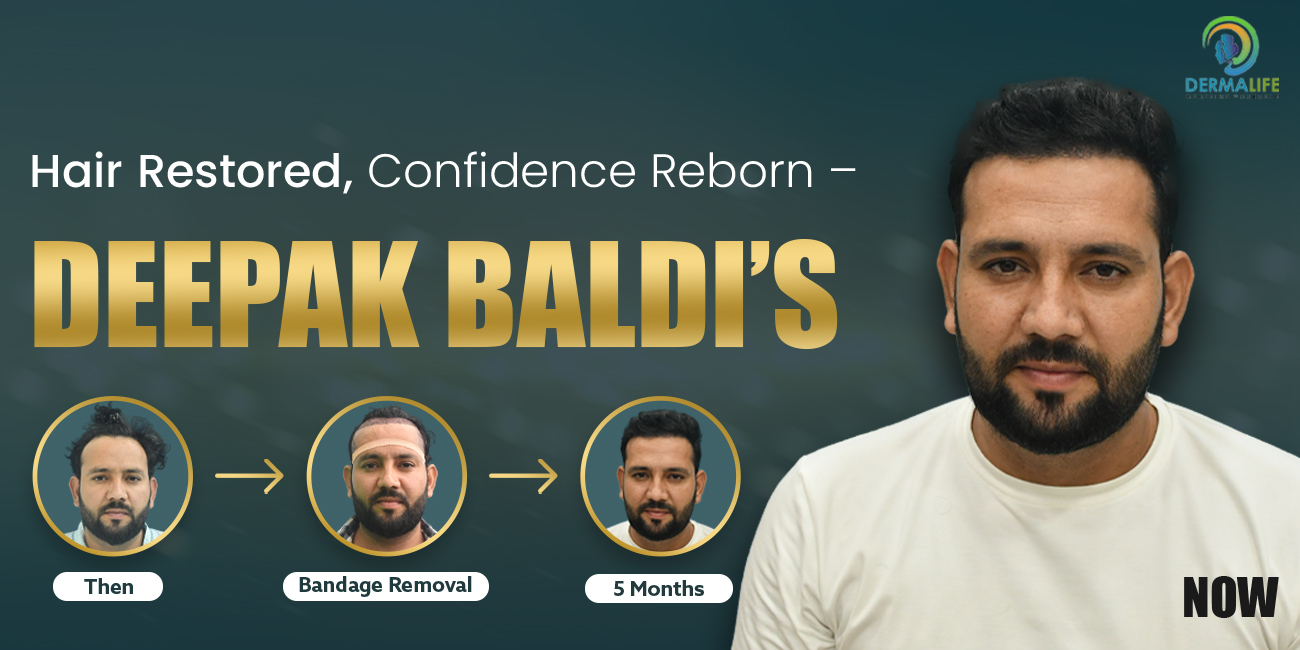Besides genetic reasons, following an unhealthy diet for many years adversely impacts the liver, which eventually causes significant hair fall. At present, a considerable number of young adults, both men and women suffer from hair loss. Most of these men turn bald over time because they do not take steps requisite for hair transplantation or treating hair loss.
Many certified dermatologists have acknowledged that hair transplant is the most effective and long-lasting solution to alopecia and other hair problems. You no longer have to suffer from an inferiority complex because you have thinner and lustreless scalp hair. Opting for a hair transplant treatment can keep hair issues at bay and help you get thicker and rich texture hair.
All you need to remember is taking necessary precautions both before and after undergoing a hair transplant is a must. Keep reading as this article sheds light on crucial things you must do to take utmost care of your hair pre- and post-transplantation.
Pre Hair-Transplant Care
Prioritizing pre-hair transplant care is imperative when you are all set to undergo a hair transplant. Doing what’s essential from your end for the sake of your hair increases the possibility of hair transplantation seamlessly. You won’t have to deal with discomfort while undergoing the procedure.
Here’s what you must start doing ten days before hair transplant surgery.
- You must not take any anti-inflammatory medications aspirin, or painkilling drugs.
- Do not consume Vitamin E and B, herbal medicines, or blood thinners.
- Your chances of bleeding while you undergo the hair transplant surgery increase to a great extent if you do not stay away from the consumption of any steroids.
- Make sure you do not apply cortisone creams
- Avoid smoking and consuming alcohol
Do’s and Don’ts: Before the Surgery Day
You must not stress about the surgery before the day it happens. Try to get sufficient sleep, which will greatly help during the hair transplant treatment. Avoid applying hair gel or spray because it may harm your hair instead of doing any good. Remember, whatever medicines your physician prescribes, have them on time before your treatment.
Do’s and Don’ts: On the Day of Hair Transplant Surgery
- Use a mild shampoo for washing the scalp properly
- Avoid having coffee if possible and stick to a light breakfast
- Do not put on any hair accessories or wig
- Stay away from involving yourself in any strenuous activities
Things a Dermatologist Will Perform
Follicular Unit Extraction Method
You will not have any option other than undergoing surgery if the need for hair transplant day by day increases. Following the Follicular Unit Extraction method will require the dermatologist to extract a few hair follicles right from the scalp’s healthy regions. Before the treatment, the hair specialist will administer anesthesia in the regions where you have experienced hair loss and baldness.
Then, the doctor performs the transplantation of the hair follicles in the bald areas leveraging advanced tools. The risk of hair transplant infection will not be there if you undergo treatment at the best hair transplant clinic under the supervision of a seasoned dermatologist.
Follicular Unit Transplantation
The physician removes the skin graft (a few inches) from the healthy spots of the scalp and cuts it into small parts to extract hair follicles. Then, hair follicles are planted into minuscule incisions on the recipient regions.

Post Hair-Transplant Care
Your post-hair transplant recovery will be faster if you take all the requisite precautions. Keep having anti-inflammatory and antibiotic medications your dermatologist prescribes after hair transplant surgery.
It is paramount to keep the bandages on for the entire day once the surgery is over. Wearing them overnight is more beneficial. Do so to keep the surgical spots and incision line clean and germ-free. Make sure on the next day, you take bandages off to keep the risk of swelling away.
Know that hair transplant care after surgery is essential if you do not want to experience hair fall or baldness again. When taking a shower a couple of days after the treatment, clean the donor area well. You must wash the recipient spots at least twice daily with a mild shampoo and conditioner.
Another vital post-hair transplant care is keeping your head elevated when you sleep to keep the transplant safe and in the exact position. In addition, avoid stepping outside in the daytime for at least two to three weeks after the hair transplant process.
Many patients choose Dermalife, founder and director is Dr. Gaurav Garg, a leading hair transplant clinic in Delhi because it has an experienced team of well-versed hair transplant surgeons. You should do the same to achieve the coveted results and style and flaunt your hair confidently after the hair transplant surgery.





